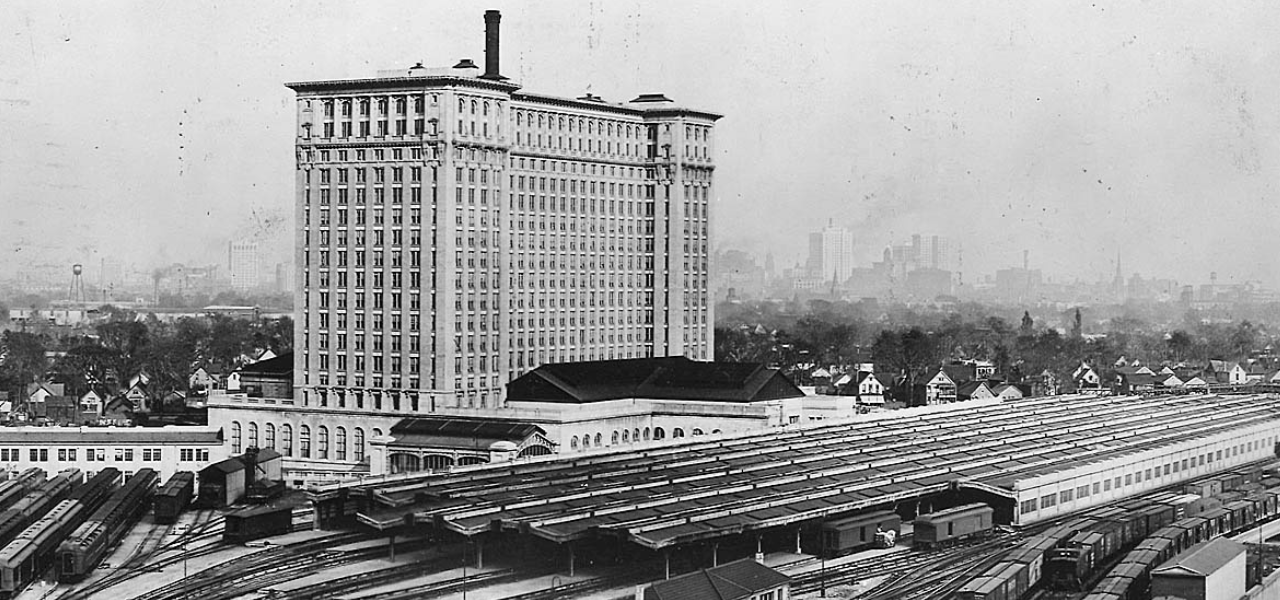
Detroit's Iconic Landmark: Michigan Central Station Reopens on June 6, 2024
Michigan Central Station, a grand symbol of Detroit's illustrious past, stands tall with a storied history that mirrors the rise, fall, and eventual resurgence of the city itself. Nestled in the Corktown district, this architectural gem has witnessed the ebb and flow of generations, serving as a gateway to the city for countless travelers and a witness to pivotal moments in history. As it prepares to reopen its doors on June 6, 2024, after more than three decades of abandonment, the anticipation has already began to reverberate through the streets of Metro Detroit.
Constructed in the Beaux-Arts style, Michigan Central Station was unveiled to the world on January 4, 1914, standing as a testament to Detroit's ambition and ingenuity. Rising to a height of 230 feet, it claimed the title of the world's tallest rail station, a crown jewel in the city's architectural landscape. Designed by architects who had previously crafted the iconic Grand Central Terminal in New York, its imposing facade and intricate details captured the imagination of all who beheld it.
In its heyday, Michigan Central Station pulsated with life, serving as a bustling hub of activity for travelers near and far. As more than 200 trains transporting more than 4,000 people departed daily, a steady stream of passengers flowed through its halls, weaving tales of adventure and discovery. From dignitaries to artists, presidents to inventors, the station welcomed a diverse array of visitors, each leaving their mark on its illustrious history. However, as the winds of change swept across the nation, the station faced challenges that would test its resilience.
The post-war era ushered in a new era of transportation, with automobiles becoming the preferred mode of travel for many. As passenger volumes dwindled, Michigan Central Station found itself grappling with a changing landscape, its once vibrant corridors now echoing with the whispers of bygone days. Attempts to sell the facility faltered, maintenance costs soared, and the grandeur of yesteryear gradually faded into obscurity. By 1988, the station stood silent, a relic of a bygone era, its future uncertain.

For 30 years, Michigan Central Station lay dormant, a silent sentinel overlooking the city it once served. Yet, amidst the decay, a glimmer of hope emerged. In 2018, Ford Motor Company embarked on a visionary endeavor, acquiring the station with plans to breathe new life into its weathered walls. With meticulous care and unwavering dedication, restoration efforts commenced, ushering in a new chapter for this iconic landmark.
The restoration of Michigan Central Station unfolded in carefully planned phases to preserve its historic significance. Initially, efforts focused on stabilizing the building and addressing water damage. In the subsequent phase, mechanical and electrical systems were modernized, and exterior masonry was restored. The final phase saw meticulous attention to the interior, with original elements preserved and replaced as needed. Throughout the process, Ford Motor Company collaborated closely with preservation authorities to honor the building's legacy, ensuring that Michigan Central's storied past remains intact for future generations to admire.
As the final phase of renovations draws to a close, anticipation mounts for the grand reopening of Michigan Central Station. On June 6, 2024, the city of Detroit will bear witness to a historic moment, as the doors of this architectural marvel swing open once more. From the meticulously restored facade to the state-of-the-art interior, the station stands poised to reclaim its rightful place as a beacon of progress and innovation.
While Michigan Central Station's days as a train station may be behind it, Ford Motor Company has ambitious plans to breathe new life into this iconic landmark. The building will serve as the future home for Ford's autonomous vehicle teams, with the remaining space open to the public. Visitors can expect a dynamic mix of offerings, including a coffee shop nestled within the original ticket windows, boutique shops, dining areas, educational spaces, and versatile event venues.
Beyond its role as a destination for visitors, the depot will anchor a sprawling mobility campus envisioned by Ford. This innovative hub aims to bridge neighborhoods and provide a range of services, fostering connectivity and collaboration within the community. As Michigan Central Station prepares to welcome a new chapter in its storied history, it stands poised to become not only a symbol of Detroit's past but also a beacon of innovation for the future.
As Detroit embraces the dawn of a new era, Michigan Central Station stands as a testament to the city's resilience and determination. Beyond its walls lie endless possibilities, beckoning forth a future filled with promise and potential. As the world eagerly awaits the unveiling of this beloved landmark, one thing remains certain: the spirit of Detroit endures, steadfast and unwavering, ready to embrace whatever the future may hold.


